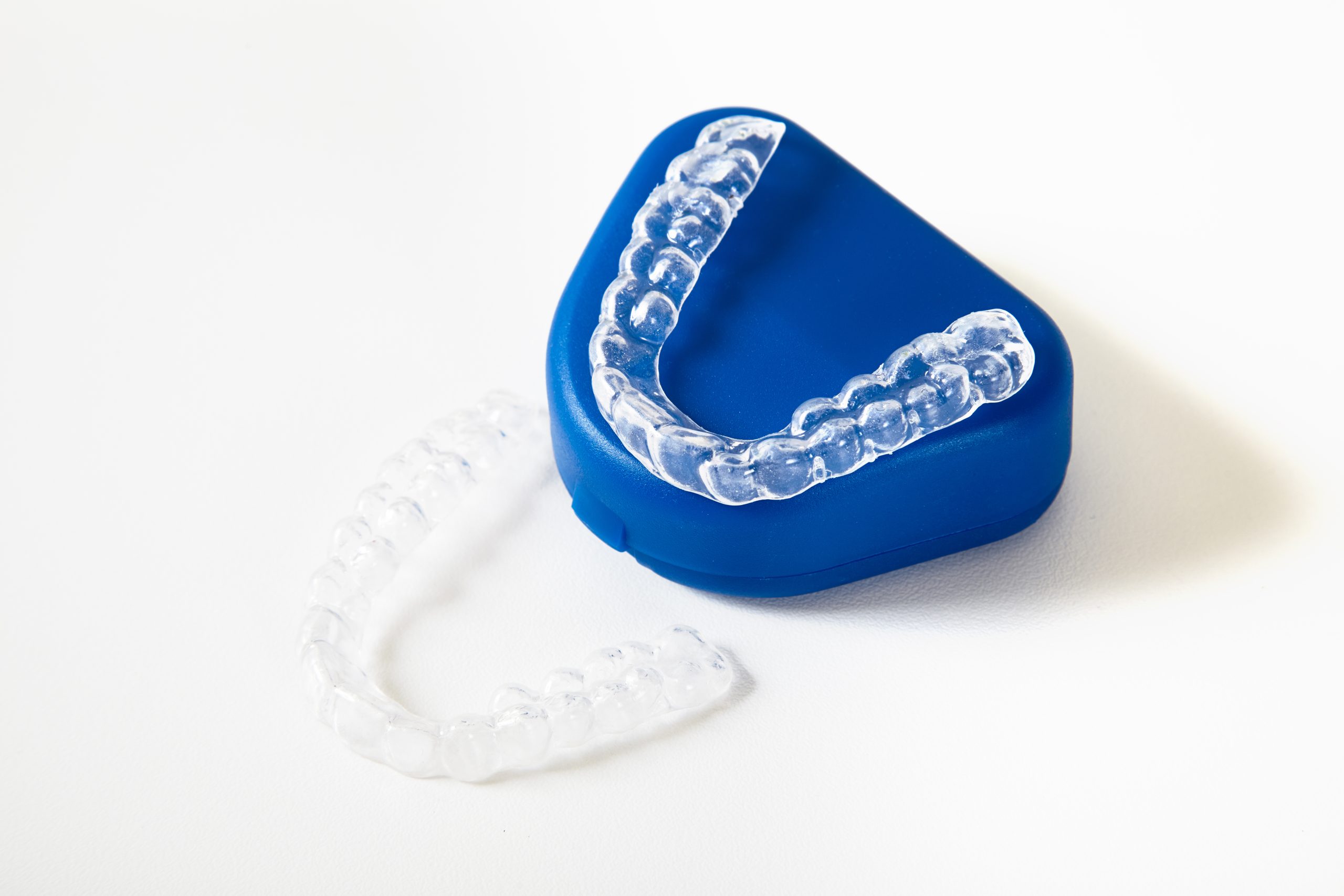Maintaining a healthy smile requires more than daily brushing and flossing. Regular dental scale and clean appointments are essential for keeping teeth and gums in good condition. These professional cleanings reduce stubborn plaque and tartar, which can lead to oral health problems if left unchecked.
A dental scale and clean session involves a thorough cleaning by a dentist, targeting areas that are often missed during regular oral care at home. This procedure brightens your smile and also helps prevent common dental problems, including gingivitis and cavities.
This article will tackle why teeth scale and clean appointments are vital for your oral health. You’ll gain insights into the procedure, its benefits, and how it can help you maintain a healthy, confident smile. Read on to discover the importance of professional dental cleanings and how they contribute to long-term oral hygiene.
Contents Navigation
Summary of the Content:

- Regular dental scale and clean appointments are essential for maintaining a healthy smile beyond daily brushing and flossing.
- These professional cleanings target areas often missed during home care, reducing stubborn plaque and tartar buildup.
- Signs of needing a scale and clean include bad breath, bleeding gums, visible plaque or tartar, gum inflammation, and tooth stains.
- Regular cleanings help prevent gum disease by reducing plaque and tartar, which, if left unaddressed, can cause gingivitis and periodontitis.
- Post-procedure care involves maintaining good oral hygiene, avoiding certain foods, and monitoring for complications like persistent pain or bleeding.
- The frequency of dental cleanings varies based on a patient’s risk factors, such as smoking, diabetes, and existing oral health problems.
- Regular professional cleanings for preventive care can lead to long-term cost savings. This approach helps avoid more complex dental procedures that are often costly.
Early Signs You Need a Dental Scale and Clean
Recognising the early signs that indicate the need for a teeth scale and clean is essential. It is a preventive measure for keeping dental problems, such as tooth decay, at bay. Here’s the list of common signs when it’s time to schedule an appointment for a dental scale and clean:
- Unpleasant breath smell:
Persistent bad breath, also known as halitosis, can be a sign of plaque buildup on the tooth surface. - Bleeding gums:
If you notice your gums bleeding when you brush or floss, it may indicate the presence of deposits of plaque and inflammation. - Visible tartar:
Hardened plaque or yellow substances between your teeth, despite regular brushing, could be an accumulation of tartar. This is a clear sign that you need a teeth scale and clean. - Gum inflammation:
Swollen or red gums often signal that plaque buildup has caused gingivitis or early gum disease, which necessitates dental scaling and cleaning. - Sticky film:
Frequent sticky film on your teeth can indicate that plaque has not been fully scraped off. If left unaddressed, this debris can irritate your gums and increase the risk of dental decay and gum disease. - Stains and discolouration:
Browning of teeth or other visible stains are signs that regular brushing isn’t enough and professional cleaning is required.
Being aware of these signs can help you take proactive steps to mitigate more serious problems that can adversely affect your oral health. If you notice any of the signs mentioned above, we highly advise you to attend your routine scale and clean appointment.
Preventing Gum Disease with Regular Teeth Scale and Clean
Regular dental scale and clean sessions are essential for preventing gum disease by reducing plaque and tartar. Over time, the buildup of plaque hardens and forms dental calculus, known as tartar. This accumulation of plaque creates an environment for bacterial growth that can irritate the gums, resulting in inflammation known as gingivitis.
If left unaddressed, gingivitis can progress and lead to a more severe form of gum disease known as periodontitis. This dental condition can cause deep pockets between the teeth and gums, which can result in bone loss and even tooth loss. Regular teeth scale and clean appointments can prevent these issues.
During a scale and clean, a dentist uses specific tools to dislodge hardened plaque from the tooth surface and below the gumline. This deep cleaning process targets areas where plaque accumulates, preventing the formation of dental calculus and reducing the risk of gum disease. Here’s how dental professionals perform the procedure:
- Scaling:
The dentist uses a scaler to scrape plaque and tartar from the tooth surface and between the teeth. This process may involve manual instruments or ultrasonic scalers that use vibrations to break up hardened deposits. - Polishing:
The dentist will polish your teeth to minimise remaining stains and smooth the tooth surface. This step involves using a rotating brush and a gritty toothpaste-like substance to achieve a smooth and shiny finish. - Fluoride Treatment:
Some appointments include a fluoride treatment to strengthen the teeth and prevent decay. The dentist applies a fluoride gel to the teeth and leaves it on for a few minutes to enhance tooth enamel and protect against cavities.
Professional teeth cleaning is a proactive measure to reduce the risk of developing periodontal disease. Prioritise your dental hygiene and consult with your dentist to schedule your next scale and clean session, protecting your smile from gum disease.
Post-Procedure Care After a Dental Scale and Clean
Taking care of your teeth and gums after a dental scale and clean appointment is crucial for maintaining the procedure’s benefits.
- Oral hygiene habits:
Continue brushing your teeth twice a day using a soft-bristled toothbrush. We generally recommend using fluoride toothpaste to help strengthen your teeth. Also, floss daily to dislodge any remaining food particles and plaque between your teeth. These oral hygiene measures are essential to keeping your mouth clean and preventing future buildup. - Foods to avoid:
While you can eat after a professional teeth cleaning, you may need to be mindful of the foods you eat. Refrain from eating sticky or hard foods that could get stuck between your teeth. Also, it is recommended to wait for at least 30 minutes if you have a fluoride treatment to allow the fluoride to seep into the teeth. - Monitor for complications:
Depending on the extent of plaque or tartar, tooth sensitivity and minor bleeding are normal after the procedure. However, if you notice persistent pain, excessive bleeding, or signs of infection like pus, please get in touch with your dentist immediately. These could indicate complications that need professional attention.
Maintaining these practises will help you preserve the results of your dental scale and clean, contributing to overall oral health. Remember to schedule regular check-ups with your dentist to keep your teeth and gums in optimal condition.
How Often Should You Undergo a Dental Scale and Clean
Regular dental scale and clean sessions are preventive care for maintaining long-term oral health and preventing serious dental issues. Understanding how often you should schedule dental appointments on a professional scale and clean is essential for maintaining your oral health. The recommended frequency can vary for each patient, depending on various risk factors and unique dental needs.
- General recommendation:
For most people, it is recommended to visit the dental clinic every six months for a professional scale and clean. This frequency is essential for addressing any buildup of plaque or tartar before they can cause inflammation or tooth decay. - Patients at risk:
Some patients may need more frequent dental check-ups and cleanings. Smokers, for instance, are at a higher risk of gum disease and may benefit from quarterly visits. Additionally, people with diabetes are also more prone to gum disease and other oral health issues. If you have these risk factors, we highly recommend consulting your dentist for a tailored care schedule. - Existing dental conditions:
If you have existing dental problems like gum disease, your dentist might recommend more frequent cleanings. Patients with periodontitis often need deep cleanings every three to four months to manage their condition effectively.
Scheduling regular dental appointments based on your specific needs will help you maintain optimal oral health. Consult your dentist to determine the appropriate cleaning schedule for you, keeping your smile healthy and bright.
Scale and Clean Costs and How to Manage Them
The scale and clean cost can vary depending on several factors. Generally, the average cost ranges from $150 to $350 per session. However, these fees can increase because of different factors:
Factors Influencing Pricing:
- Location:
Dental clinics in urban areas may charge more than those in rural areas. The cost of living and overhead expenses in cities are usually higher, which can be reflected in the pricing of dental services. - Dentist’s experience:
More experienced dentists may charge higher fees for their services. Their skills and reputation can lead to increased demand for their dental services, justifying higher rates for a professional scale and clean. - The severity of the condition:
If there is significant plaque buildup or the need for a complex procedure, the cost can be higher. Severe tartar accumulation might require more time and particular dental tools to reduce, increasing the overall cost of the treatment. - Health fund cover:
Many health plans cover part of the scale and clean cost. It’s advisable to check with your health fund provider to understand what is covered under your plan. Some dental clinics also offer payment plan options or discounts, which can help manage the overall cost.
Professional cleanings can minimise the likelihood of requiring more complex procedures in the future, potentially saving you money in the long run. Investing in preventive care is a cost-effective way to maintain your dental health.
Knowing what influences the scale and clean cost can help you prepare your budget for your dental care. Consult your dental clinic for a detailed estimate and to discuss payment options that suit your needs.
Final Thoughts
Regular dental scale and clean appointments are crucial for preventing serious issues like gum disease and maintaining optimal oral health. Recognising the signs that you need a professional cleaning, such as bad breath, bleeding gums, or tartar buildup, can help you stay ahead of potential problems.
Professional scale and clean sessions not only keep your smile bright but also protect against the progression of minor issues into major dental problems. Following proper aftercare tips, like maintaining good oral hygiene and avoiding certain foods, helps the benefits of your cleaning last longer.
At Enso Dental North Perth, we are dedicated to helping you achieve and maintain better oral health. Call us or visit our website to schedule a consultation appointment. We look forward to helping you keep your smile healthy and beautiful.









